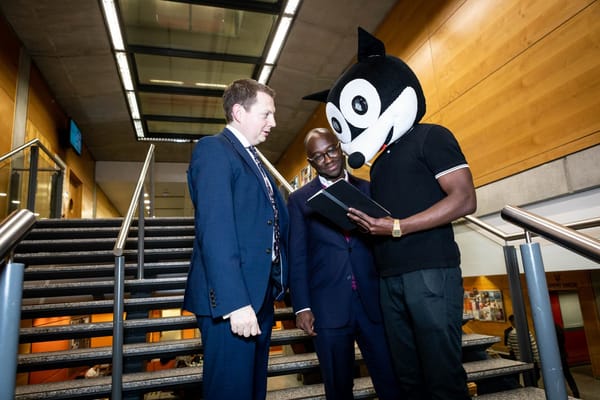As Tuesday's Brexit vote looms, Imperial left in dark about future
One fifth of Imperial's student body is EU. What do their futures look like?

All day the news rumbles on. Theresa May continues to push her Brexit deal, and MPs continue to push back. The truth becomes abundantly clear, that not one politician, nor pundit truly knows what Brexit looks like for the people of this country. In this climate, universities must reassure their staff and students alike, that their futures are still secure.
Last week, the Provost and President sent an email to all staff saying they are “ambitious about the future.” They encouraged staff to keep applying for European research grants and to continue to recruit EU staff and students.
The College Brexit Advisory Group, they added, were preparing contingency plans for all scenarios. Though what this actually means is unclear.
These are all hopeful statements in an uncertain time.
Students themselves have had little reassurance so far. The government has promised that EU students applying until 2019, will be guaranteed the same fee status as UK students. No promises have been made beyond that so far. Though Imperial say they are campaigning for the government to provide clarification for the years 2020 and 2021.
Of all the student populations in the UK, Imperial’s has the third largest proportion of EU students. A fifth of Imperial’s students are EU. More so than UCL, Oxford and Cambridge.
Imperial received £141 million in EU cash last year and currently has 317 projects funded by Horizon 2020 (second only to UCL). The university more so than any other in this country will be affected greatly by the UK leaving the European Union.
So what does the future for Imperial look like? Will the proportion of EU students have to fall in Imperial, after Brexit? So far the signs suggest that they will not.
Vice Provost of Education, Simone E. Buitendijk, told Felix that student application numbers “both from the EU and the rest of the world, have continued to grow since the Brexit vote”.
Moreover, Imperial’s recently acclaimed novel partnership with the Technical University of Munich, could be a boon for students too. The partnership, the first of its kind for a UK university, means that any new hires to Imperial, will work jointly for both universities. This allows the staff member to still apply for certain EU research projects.
It is widely assumed other major research intensive universities will follow suit, and forge such partnerships with other EU universities. Buitendijk says the partnership with Munich will also allow for “new student exchanges and summer schools.”
Buitendijk adds that the university is campaigning for “visa reforms that will offer easier access for international students to come here and for recent graduates to stay here”.
Ultimately though, everything is up in the air, and there is only so much the university can do to reassure us.
So for now, all Imperial staff and students can do is wait until Tuesday’s vote on May’s Brexit deal, and hope for the best.







